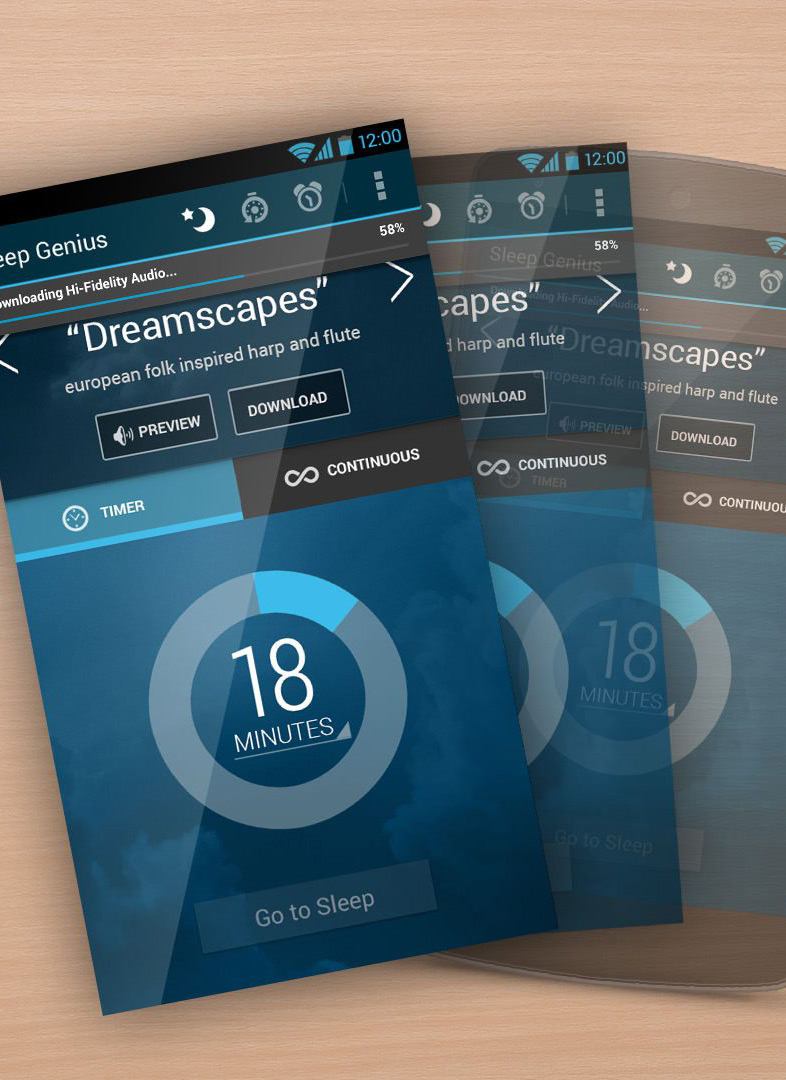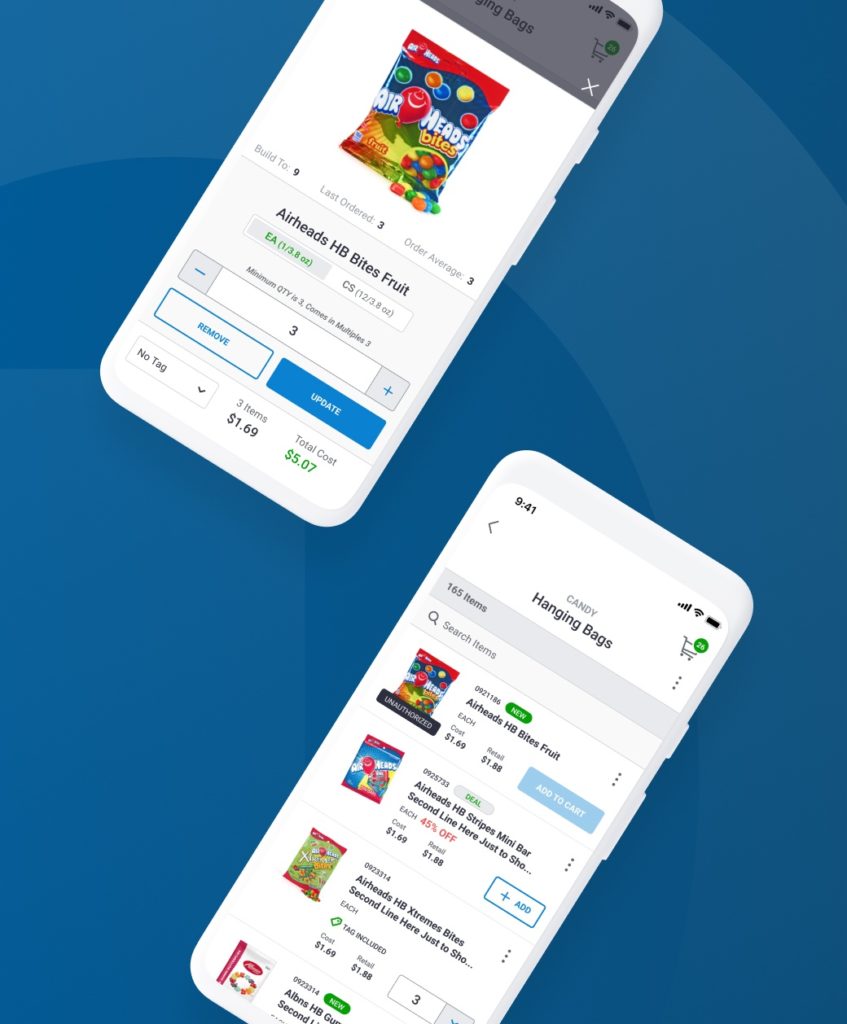Article
A Brief Overview of Mobile App Development in Android

What is mobile application development for Android, and why should businesses care about it?
It only takes a brief survey of the statistics to realize how popular Android is and why mobile app development in Android makes sense for businesses across the spectrum.
With over 2.5 billion active users, Android is currently the world’s most popular operating system. And in Q2 2022, Android’s Google Play store offered some 3.5 million apps, compared to 2.2 million available for iOS, the operating system for Apple’s ecosystem of mobile devices.
Businesses across various industries benefit from designing and developing mobile apps, and if your users predominantly leverage Android-powered devices, developing specifically for this operating system makes sense. The challenge lies in identifying the best approach for your users between options like Android, iOS, hybrid mobile development, or even progressive web apps, then making a strategic decision based on your findings. Regarding Android, if your team isn’t equipped to:
- Develop in Kotlin, Java, C++
- Utilize an Integrated Development Environment (IDE) like Android Studio
- Leverage libraries, frameworks, SDKs, and UI toolkits like React Native, Angular, Ionic, Xamarin, Titanium Mobile SDK, Gimbal SDK, or Flutter
Then understanding certain fundamentals of mobile application development, or working with a company that does, is imperative. This article will:
- Cover the key benefits of developing for Android
- Discuss the strategic considerations for mobile app development in Android
- Briefly outline several technical factors developers should be aware of before (and during) the development phase
Let’s dive in!

5 clear-cut benefits of Android mobile app development
For many organizations and businesses, Android is the obvious choice for app development. Here are a few common reasons:
- It’s an economic platform: Developing for the Android platform can be approached with various frameworks, libraries, SDKs, and other development tools. More customizability gives developers different routes to the final destination of launching an app, so while tradeoffs can be expected, flexible approaches to development are possible. Regarding economy, Android is appealing to users as well––Android hardware is generally less expensive than iOS platforms and devices.
- Bring your own device (BYOD): Android has versatility and scalability that allows for integration with the whole Android ecosystem, including smartphones, wearables, tablets, and Android TV. From Samsung to Sony, Motorola, LG, and many more, there is a huge range of options for users when deciding which device-maker to go with (as opposed to iOS, where the iPhone or other devices in the Apple ecosystem are the only options). Compatibility with VR and AR is also a possibility. BYOD benefits app makers––more users, more device types, and more opportunities to increase downloads of your app.
- The potential for higher ROI in a variety of areas: Because Android is an open-source platform, developers have total access to the innovative possibilities enabled by Android software development kits (SDK), native libraries, frameworks, and more. Simply put, there’s less gatekeeping to getting your app launched on Android or developing within the OS. Being open-source, Android is a robust, flexible ecosystem. With such a wide range of community support and potential integrations, development cycles are faster and more cost-effective in many cases.
- Easily customizable for different user and business needs: Android has a versatile platform with easy-to-use customization options that allow the production of diverse apps to suit all your customer needs. Modifications can be simple or complex depending on your use case and business requirements, but Android’s versatility is a bonus.
- Multi-channel distribution: Your development team can deploy Android apps in various ways. Rather than relying on a single market to distribute your Android apps, you can develop your own distribution channels, create new stores, and make access available from your website, allowing you to reach more potential users.
The benefits listed above aren’t exhaustive, and not all are exclusive only to Android. But they stand out as some of the reasons businesses should consider when deciding to develop a native Android solution or a cross-platform experience.

Strategic considerations for mobile app development in Android
Because of the ever-increasing number of mobile apps on the market, strategy, user experience (UX), and principle-driven app development are essential to ensure your app doesn’t go unnoticed. There is extensive technical documentation and educational resources for developers starting out or looking at answer a specific query, but we want to list some of the general, high-level elements we consider on the front end of any project.
1. Spend time learning about the market
Determine what your audience needs and what apps are currently available to them that you’re competing against. Is a native Android app actually the best fit for your target audience? If your user base is broad and exists across multiple operating systems, then this might not be the case, and a hybrid option may be more suitable. A hybrid app allows you to develop a single app that will run on multiple operating systems––Android, iOS, etc. If your workforce only uses Android devices, however, or if your user base occupies a demographic more comfortable with Android, then native development is worth considering.
This is difficult to parse without spending time doing research, an essential phase before diving into design or development.
2. Check Android criteria
Android devices run different operating system versions, for example, Android 4.0 or Android 4.4. As an updated version of the OS is made available, Android adds a new SDK and accompanying Application Programming Interface (API) level. Doing so enhances UX, security, and platform performance, a bonus for end-users.
Developers should be aware of SDK releases and API levels. The API level indicates the minimum platform version an app must be compatible with. Your needs to meet Google Play’s API level requirements, which change over time. For example, a current app must target Android 12, which has an API level of 31.
Keep in mind that this also applies to updating legacy apps, as new standards for the OS necessitate planning, preparing, and rolling out new releases.
3. Plan your app
Planning your app from start to finish before development is essential to work out potential issues and streamline the development process. Planning is typically easier if you collaborate with a development team and adhere to a defined process. Regardless of your vendor or whether you decide to develop internally, factors to consider at this stage should include the following:
- “Solution Architecture” & business rules planning: Define the requirements to successfully implement a software solution and apply business logic to the creation of your mobile apps (and other tools).
- Requirements gathering: Determine what your mobile app needs to achieve and what is required to make that happen; build consensus and decrease assumptions.
- Reviewing best practices: Determine what must be included to account for high-quality UX, app functionality, and workflow efficiency; best practices and user needs change over time, so staying current is essential.
- Competitive research & ‘problem’ identification: Meet with actual users to determine what problem they’re facing, rather than relying on what you think they need and missing the mark. Also, evaluate competitors to learn from what they aren’t doing well and establish your differentiation.
- Interviewing stakeholders: Talk to business stakeholders (not just users) to understand KPIs and desired ROI, then strike a balance between business and user needs.
4. Identify your ideal development software and tech stack
This part of the process can seem overwhelming, particularly if your development team has limited resources or experience or if you are trying to design the app yourself and are a beginner. One factor is the difficulty of using one of the many software development platforms available for Android app development. Knowing which is the right one for your needs and your users’ needs is another, as the number of frameworks and platforms is huge. Factors to consider include:
- Finding a suitable platform that checks all (or most) of your boxes
- Choosing a framework that your team is capable of using
- Considering the size of your user base and what will be required to serve them
- Being mindful of the complexity of your application and whether your tech stack is appropriate
- Your budget and timeline, which can also impact choices in the areas mentioned aboves
Teaming up with Fresh’s development team is one way to ensure that your app is built with a platform and framework suitable for your individual needs while maximizing your customer experience and user experience (UX).
5. Test Your Final Product
Pre-launch end-user testing is essential. Usability testing not only helps you understand how users will interact with your app but also helps you to see if your users are happy or frustrated with the app. Proactivity here is essential; much of this can be determined and addressed before launch. Here are some additional benefits that tie back to Fresh’s mobile strategy services:
- Fine-tuning operations: Test to gain valuable insights into which aspects of your app work well and which don’t
- Meeting landmarks: Test to validate whether your goals for your new app are being achieved
- Anticipate and avoid pitfalls: Discover glitches and issues that could have been disastrous post-launch
- Streamline user experience: Find out if your app has a pleasing user interface and layout
- Optimization of functionality: Ensure your app meets your users’ wants and needs seamlessly
- Eliminate problems: Debug the application in a measured, strategic way
- Maximize reach: Learn where to promote your app through app stores and social media platforms based on data you unearth about your target users.
For more on testing, consider exploring our white paper on the topic.

Develop your Android app with Fresh Consulting
If approached strategically, mobile app development in Android can be a cost-effective option that can help you reach out to your user target base and increase your stake in the market. Whether you’ve already decided that a native Android app is right for your business, or you if you’re not confident whether an Android or hybrid app would be the right option, don’t hesitate to contact our experts to learn more. Once we’ve discussed your business goals, we can pinpoint your unique needs and customize our development approach.
From developing apps to optimize internal workflows to building customized widgets for an interface, need customized widgets for an interface, our team of consultant developers can help you develop an exceptional mobile app that stands above the competition.









